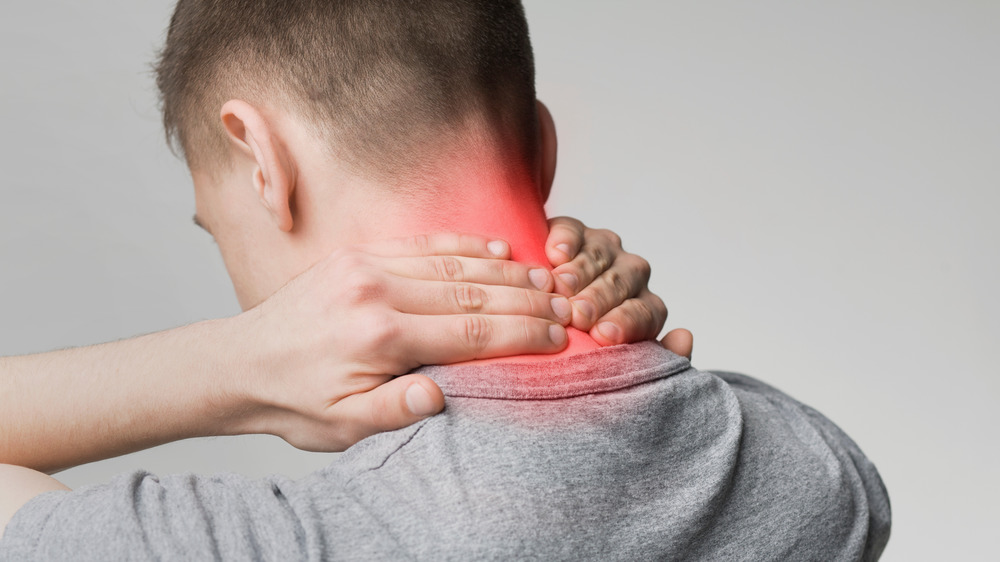Cracking Your Neck Is More Dangerous Than You Think
Cracking your neck is incredibly satisfying and feels good afterward, so what's the problem, right? Not so fast. As reported by Health Digest, neck cracking is just one of many seemingly benign habits that can send a person to an early grave. Most of these habits, like not getting enough fresh air or not flossing one's teeth, are cumulatively harmful over a long period of time, but a poorly timed and placed neck crack can be an instant trip to the emergency room — or worse.
As reported by the Washington Post in 2019, Josh Hader of Oklahoma was attempting to relieve some ongoing neck discomfort by stretching when he "heard a pop." Within an hour, he was in the emergency room unable to walk after a "major stroke," caused by a tear in his vertebral artery in his neck that had formed a blood clot. As Dr. Vance McCollom explained, the vertebral artery runs up into the brain. Hader could have died. Luckily, Hader recovered, after receiving life-saving drugs that dissolve blood clots and weeks of physical therapy. Balance and muscular control issues lingered, however.
Kazuma Nakagawa, a stroke neurologist, explained to the Post that vertebral artery tears causing strokes in otherwise healthy, young people in their 20s and 30s are a rare but very serious occurrence. He went on to note that "99.9 percent of the time you pop your neck and it's fine." It's the .1 percent that's the concern.
A pain in the neck can be so much more
Neck cracking can lead to problems even when overseen by a medical professional. In 2016, model Katie May of Los Angeles, California, the self-proclaimed "Queen of Snapchat," died after visiting a chiropractor to relieve pain from a pinched nerve in her neck. As reported by CBS News, May felt sick a few hours after her appointment and went to the emergency room. She was pronounced brain dead the next day and taken off life support. The cause turned out to be a "vertebral artery dissection," the same injury that caused Josh Hader's stroke.
A neurosurgeon spoke with CBS News, calling the chances of injuring one's neck due to a chiropractic adjustment rare, yet possible, and possibly disabling. The physician advised against treatment involving "rapid twisting of the neck." Dr. Keith Overland with the American Chiropractic Association responded that such treatments are safe and that while he wasn't present for May's treatment, "What we do know is that it takes extreme force in order to tear a retrieval artery." The ACA recommends giving a detailed description of all symptoms in order to get proper care or a referral. No matter what, it seems a good idea to take special care when it comes to treating neck discomfort or pain.

